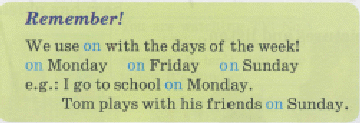Поурочное планирование для 3 класса на тему Время. Урок начинается с организационного момента с вопросами. Повторяем прелоги с примерами. Проверяется домашнее задание режим дня. Учащиеся повторяют тему настоящее время и делают задания.
Создайте Ваш сайт учителя Видеоуроки Олимпиады Вебинары для учителей
Поурочное планирование по английскому языку на тему "Times of my day"
Вы уже знаете о суперспособностях современного учителя?
Тратить минимум сил на подготовку и проведение уроков.
Быстро и объективно проверять знания учащихся.
Сделать изучение нового материала максимально понятным.
Избавить себя от подбора заданий и их проверки после уроков.
Наладить дисциплину на своих уроках.
Получить возможность работать творчески.
Просмотр содержимого документа
«Поурочное планирование по английскому языку на тему "Times of my day"»
Полезное для учителя
Распродажа видеоуроков!
1660 руб.
2770 руб.
1850 руб.
3080 руб.
1610 руб.
2690 руб.
1520 руб.
2530 руб.
ПОЛУЧИТЕ СВИДЕТЕЛЬСТВО МГНОВЕННО
* Свидетельство о публикации выдается БЕСПЛАТНО, СРАЗУ же после добавления Вами Вашей работы на сайт
Удобный поиск материалов для учителей
Проверка свидетельства

















